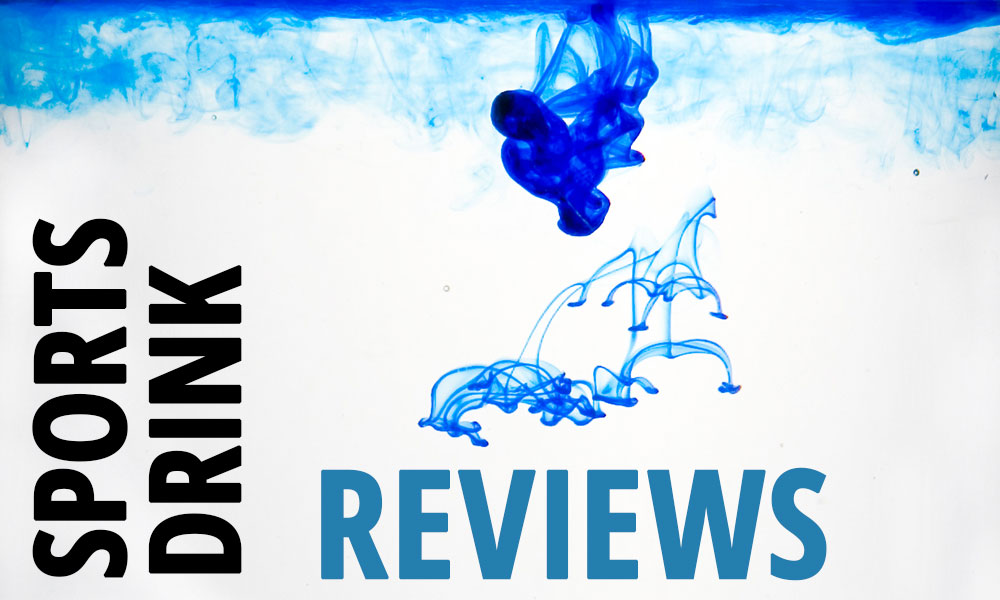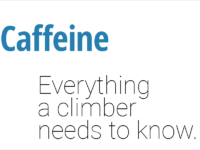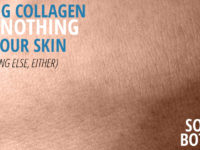This is a continually updated post. If there is a sports drink not covered here yet, it probably will be in time. You’re more than welcome to email me requests, I’m happy to oblige.
READ FIRST!
These reviews are based on my own expert knowledge of sports nutrition; I do not receive compensation in any form from any of the companies represented below. My ratings are based solely on objective scientific fact as far as it pertains to sports nutrition, and thus I do not take into consideration many subjective factors that may ultimately be important to you when purchasing a drink such as price, taste, and “naturalness” of ingredients. Keep in mind that if you cannot afford a drink or do not care for its taste, you will not drink it and even the highest-rated drink will be worthless.
All data is based off manufacturer labeling, and all drinks are reviewed whenever possible as if they were mixed to a liter of solution. Tonicity is an educated estimate based on stated ingredients, but please note that in many cases it’s impossible to know 100% for certain the ratios of ingredients, and thus tonicity may be off. In nearly all cases, however, the stated tonicity should be within 5% of the actual tonicity and unlikely to affect the final review.
If you are considering purchasing a drink, I recommend you read the entire review for said drink because I commonly suggest simple ways you can alter or improve it. Also, the difference between a drink I “recommend” and “highly recommend” often comes down to versatility, and that versatility may be irrelevant to your situation; therefore, don’t necessarily discount anything below “highly recommended” but read up on any drink you’re curious about.
These reviews are targeted primarily at rock climbers, but truly they are universal. If you happen to be a biker, runner, triathlete, skier, wrestler, or any other athlete, the final ratings are equally applicable but may require a little interpretation.
Table of Contents
Highly Recommended
Recommended
Not Recommended
1st Endurance EFSRecommendation: Not Recommended 1st Endurance EFS is a high-electrolyte sports drink with added BCAAs (branched chain amino acids). It has 68 grams of carbohydrates per liter (6.8%), many of which are in the form of “complex carbohydrates” (most likely maltodextrin) that should hypothetically help keep total osmolality low, but the unfortunate truth is that so much extra junk has been thrown in that even with complex carbs the drink is still hypertonic when prepared as instructed. 1st Endurance EFS boasts that it has the “highest electrolyte content available”, which may be true but is also completely irrelevant to the needs of a climber (or any athlete). For example, it’s really not clear why any company would choose to add 423 milligrams of magnesium per liter of sports drink when the magnesium lost from a liter of sweat is always less than 5 milligrams; this is marketing getting in the way of performance. The drink is higher in sodium (good) than most other drinks, but the rest of the electrolytes just add needlessly to the ultimate tonicity. 1st Endurance EFS also has about 5.6 grams of BCAAs per liter, hypothetically to improve endurance, but that benefit won’t be realized until after the second hour of straight exercise and would be better taken care of with a whole protein, like whey (which also has significantly less effect on tonicity). Overall Recommendation: 1st Endurance EFS is a sports drink primarily aimed at endurance athletes, and as such is marketed with all kinds of gimmicky ingredients that appeal to the perceived needs of those sports; in reality, those needs mostly do not exist, and when they do they can be settled with far less. The hyperbolic nature of the electrolyte content and the addition of BCAAs tip the drink over the edge into the realm of hypertonicity, which means it is less than ideal for hydration. This is by no means a terrible product (it’s no Powerade), but there are many better choices that I would recommend using instead. |
Fluid Performance Natural Sports DrinkRecommendation: Highly Recommended Fluid Performance Natural Sports Drink has a typical amount of carbohydrates per serving at 6.8% and a glucose to fructose ratio of 2:1 (also normal). This is a perfect amount of carbohydrate for most typical climbing situations that would call for a sports drink. Given the low tonicity of the beverage, it’s also possible to increase the concentration to improve carbohydrate intake for more intense scenarios without creating an unduly hypertonic beverage (it rises to 292 mOsm/L, which is isotonic); simply mix at 133% the called for amount (this is very roughly equivalent to adding a fourth scoop per liter). Fluid Performance Natural Sports Drink is slightly subpar in terms of sodium. While it skirts very closely to the minimum recommended (575 mg/hour), it’s likely the typical sweaty climber will benefit from higher sodium intake during exercise if they are not concentrating the beverage. Not to worry, it’s easy to increase by adding a 1/4 tsp of regular table salt per liter of beverage. There are minimal (for a commercial drink) amounts of calcium and magnesium, but excess amounts of vitamin C. None of these ingredients will do much for a climber, but they don’t impact tonicity much in these amounts either. Overall Recommendation: Fluid Performance Natural Sports Drink is an excellent sports drink for most climbing situations and has the additional benefit of being easily concentrated (to 133% strength) without significantly impacting hydration. Other than possibly adding supplemental salt, this sports drink is perfect as is and can fulfill any of your needs. |
Gatorade Thirst QuencherRecommendation: Recommended Gatorade Thirst Quencher is the original sports drinks—the one that inspired every other one available today. As such, it’s probably the closest thing to a “standard” sports drink on the market today. Gatorade has a typical carbohydrate content of 6.0% (or 60 grams per liter) and likely consists of a 2:1 glucose to fructose ratio (though this cannot be determined for certain from the label). Since it is prebottled (the powder version will be reviewed separately), it is impossible to concentrate and cannot be boosted beyond 60 grams per liter—but this amount is fine for most typical climbing situations. Gatorade Thirst Quencher is unfortunately rather low in sodium at only 451 milligrams per liter, or 78% of the recommended minimum sodium intake per hour. This is probably for reasons of taste since Gatorade Thirst Quencher is frequently consumed outside the context of exercise, and since sodium can make beverages unpalatable. Given the already high tonicity of the beverage, it’s only possible to add 1/8 a teaspoon of salt to the solution (about 288 mg sodium) before it becomes hypertonic. Adding 1/8 a teaspoon of salt will bring the total sodium to 739 milligrams, which is reasonable. Overall Recommendation: Gatorade Thirst Quencher is an average sports drink suitable for typical climbing intensities and situations. It is low in sodium and should be supplemented with an extra 1/8 teaspoon. This drink is right on the edge of being “not recommended”, but in a pinch you can almost always find it and it’s way better than nothing. |
GU Hydration Drink Mix (formerly “GU Brew”)Recommendation: Recommended (when doubled) GU Hydration Drink Mix is the closest thing to a “bare bones” sports drink that we can really expect—it’s only carbohydrates, sodium, potassium, and flavoring/coloring. The recommended serving size is a little small, however, as it provides only 29 grams of carbohydrate per liter; to achieve a more effective dose, you’d need to double the strength, which is virtually the same as just adding 3 packets to each liter of water. Half of the carbohydrates come from maltodextrin and the other half come from fructose, which is probably the only downside to this drink—it has more fructose than I’d typically recommend (though still within a reasonable limit). GU Hydration Drink Mix has an ideal level of sodium (again when mixed double-strength) of roughly 806 mg/L, enough to offset most climbers’ sodium losses. It also has potassium, which is not a particularly useful electrolyte but is in such small amounts that it barely registers on the tonicity of the beverage. Even when doubled in potency, the beverage will remain hypotonic. Overall Recommendation: GU Hydration Drink Mix is a good “basic” sports drink suitabl for most typical climbing scenarios. It has plenty of sodium but unfortunately is high in fructose, which will prevent it from being more than doubled in strength without increasing the risk of GI distress. If GU had used sucrose in their formulation instead of fructose, not only would the fructose content be more ideal, it would be hypotonic enough to allow for even more concentration when needed—alas, that is not the case. As is, GU is still a recommended drink, just don’t add more than 3 packets per liter of water. |
Hammer Heed Sports DrinkRecommendation: Not Recommended Hammer Heed Sports Drink is the most pseudoscientific sports drink I’ve reviewed yet, which might be fine if it was actually an otherwise decent sports drink. As it is, though, it’s not—and further, it’s really difficult to measure tonicity because they’ve labeled their product so poorly. For example, Heed contains electrolyte mineral chelates like most sports drinks… but unlike most sports drinks, it doesn’t tell you what type—it just says “potassium chelate” or “magnesium chelate”. Also, instead of using sugar as a sweetener they opt to go with xylitol, a sugar alcohol that can cause acute GI distress when consumed in large enough amounts. Unfortunately, they don’t label how much of this sugar alcohol is in the mix, so your guess is as good as mine as for when it’s going to give you the runs. Hammer Heed Sports Drink for some asinine reason is also ridiculously low in sodium with only 45 milligrams per serving, or less than a tenth as much as the minimum recommended per hour. Instead, it includes minerals that aren’t even electrolytes like manganese and chromium. They give no rationale for including manganese (but there’s literally no reason why they should, anyway) and for chromium they trot out a pseudoscientific line about chromium helping with glucose control. Yea, chromium does that… but our diet is so rife with chromium that supplemental chromium does absolutely nothing, even in diabetics, and even if it did it wouldn’t have that effect during exercise because it’s not plasma chromium that has that effect, it’s a molecule called “glucose tolerance factor” that is synthesized from chromium (something that sure as hell isn’t happening to any great extent during exercise). *Phew* Sorry, I get a little worked up when I see stupid s*** in sports nutrition. Overall Recommendation: Hammer Heed Sports Drink underserves you stuff you could actually use during exercise (like sugar and sodium) and instead offers up a bunch of useless pseudoscience-inspired opaquely labeled ingredients. I couldn’t measure actual tonicity because their label is so poorly done, but given the ingredients I can assume it’s hypotonic, which is the most positive thing you can say about this drink. Still, even if you don’t get osmotic diarrhea, xylitol-related diarrhea is a very real possibility. Don’t buy this drink. |
PoweradeRecommendation: Not Recommended Powerade is a fake sports drink—that’s really the only way to put it. Owned by the Coca-Cola Company, it’s on the market solely to compete with Gatorade—but unlike Gatorade, it completely fails as a sports drink. To begin with, it’s hypertonic, which means that it will actually suck water out of the blood and into the intestines before reabsorbing it. During exercise, this can temporarily worsen hydration and even lead to osmotic diarrhea. You don’t want to be that guy on the cliff. Secondly, they use high-fructose corn syrup as the only source of carbohydrates. High-fructose corn syrup is 55% fructose and 45% glucose, which means that every liter of Powerade has more fructose than glucose, the exact opposite of what we want (ideally, a sports drinks should provide a 2:1 ratio of glucose to fructose). We have limited capacity to absorb fructose and the rest is metabolised by gut bacteria, which also can cause diarrhea. You really don’t want to be that guy on the cliff. Powerade provides less sodium than any other sports drink on the market and instead adds in a few other pointless electrolytes and vitamins—good for marketing, worthless to you. I would say you can supplement sodium into the product to make up for this, but I hope you never drink Powerade during exercise. Overall Recommendation: Powerade is not a sports drink, it’s just masquerading as one. Don’t use it. | PowerBar Recovery Sports Drink MixRecommendation: Recommended PowerBar Recovery Sports Drink Mix on the face of it looks like a poor choice due to it’s high tonicity—but this can be easily remedied by diluting the beverage since it contains plenty of carbohydrates (84 grams per liter when mixed at recommended strength). By mixing at a slightly lower strength (equivalent to 3 scoops of the mix per liter of water), the beverage will be isotonic and still provide 60 grams of carbohydrates. PowerBar Recovery Sports Drink Mix has a strong showing in the sodium department, but not so much as to be excessive. It will easily fulfill nearly all climbers’ needs. It also contains whey protein isolate (it’s technically a recovery drink meant for after a workout), which could be beneficial in some scenarios such as extended exercise where you cannot easily get protein. Whey protein has virtually no effect on the tonicity, though it will make the taste slightly milky. Overall Recommendation: PowerBar Recovery Sports Drink Mix is a decent sports drink—even though it’s technically designed for use afterwards—but needs to be diluted for use during climbing (3 scoops per liter will do it). It has plenty of sodium and the addition of whey may be helpful in some situations. It is suitable for most climbing scenarios, but especially those where you may not be able to consume adequate protein. |
Skratch Labs Exercise Hydration MixRecommendation: Recommended Skratch Labs Exercise Hydration Mix is fairly low in carbohydrates—only 44 grams per liter. For most working athletes this is a suboptimal amount and just below half what they could absorb. Of course, the typical climber probably doesn’t need 90 grams per hour (assuming a hydration rate of a liter per hour) except for the most grueling of training or climbing days, and even then only when they will be at it for hours in a row, but may still benefit from a slightly higher hourly carbohydrate intake of 60 grams. This can achieved by using an extra 33% more than the normal amount, which will make the beverage ever-so-slightly hypertonic (307 mM/L) but still close enough to isotonic to not significantly affect hydration. Skratch Labs Exercise Hydration Mix contains large amounts of functionally unnecessary electrolytes and one vitamin (potassium, calcium, magnesium, vitamin C), but also an appropriate and rarely seen amount of sodium (761 milligrams per liter). While the extra electrolytes and vitamin C have no benefit, they are also not harmful and only minimally affect tonicity. Overall Recommendation: Skratch Labs Exercise Hydration Mix is a lower-carbohydrate sports drink mix suitable for more relaxed climbing scenarios. By concentrating the beverage to 133% strength, it is suitable for most climbing scenarios. You cannot concentrate this beverage beyond 133% without making it unduly hypertonic, which decreases its hydration power and could lead to osmotic diarrhea. |















Excellent commentary. You make this easy to understand.
Thank you, I appreciate that!
As I shop for it, it looks like Fluid Performance Natural Sports Drink has a “new and improved formula.” Is it still “top of the class” or does it need to be adjusted? The numbers on the container are very different from what you have listed in your original article. I’m interested in trying it for multi-day (continuous) running events. Thank you.